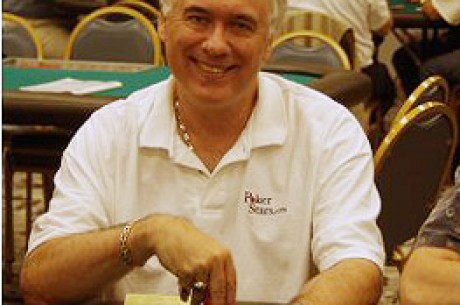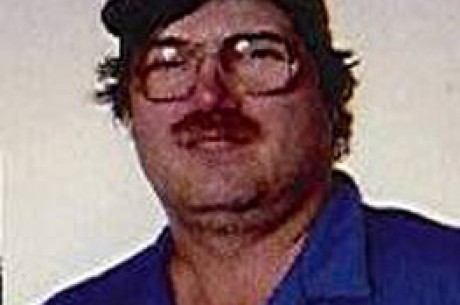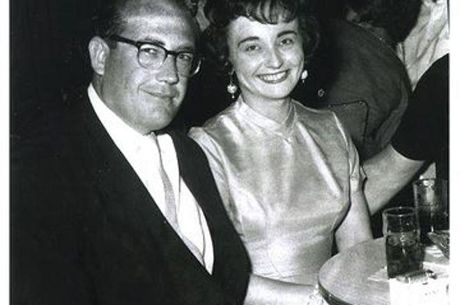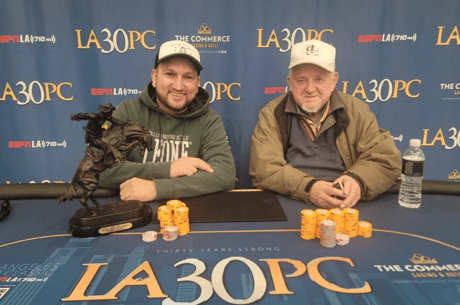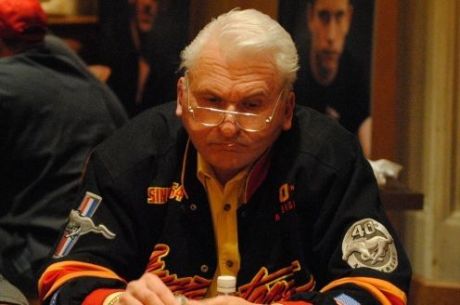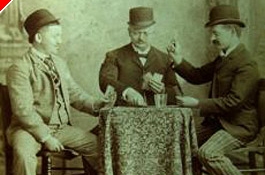Legends of Poker - Johnny "The Orient Express" Chan
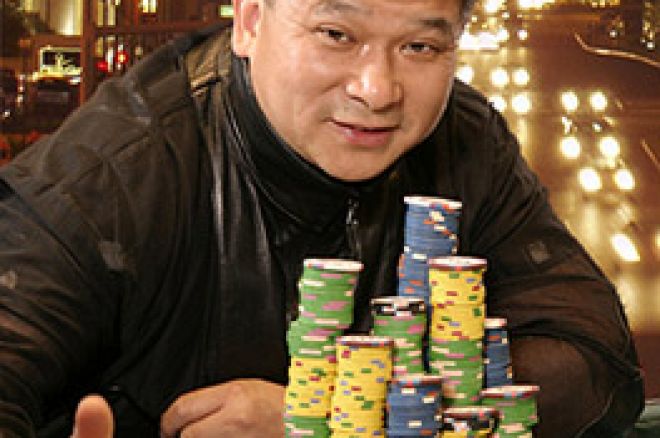
Like actors labeled "overnight sensations," Johnny Chan moved slowly up the feeding chain of professional poker players and hit the big-time at the 1987 World Series of Poker. Suddenly everybody had heard of him. But several years before that, in 1983, top oddsmaker (and owner of the El Cortez Hotel and Casino in Las Vegas) Jackie Gaughan listed a "John Chan" as an 80-1 shot to win the championship event of the WSOP.
You can't blame Gaughan for listing Johnny there, he wasn't exactly a household name, but that was a higher price than even players like Barbara Freer, Gabe Kaplan, and Aubrey Day. Don't get me wrong, those are very fine players, but Johnny was the same odds as Berry Johnston, and Johnston had taken third-place the year before! Of course it was Johnston who actually won the event first, taking down the top prize in 1986, so maybe just being listed was a true measure of each player's potential.
Johnny was born in 1957, in Canton, China. His family moved to Hong Kong in 1962, and then settled in Phoenix, Arizona in 1968. Johnny must have liked the desert, because after moving to Houston in 1973 and attending college (where he majored in hotel and restaurant management), he traveled on to the sunny skies of Las Vegas.
Although his father hoped he would apply his college learning to the family restaurant in Houston, Johnny was more interested in poker, and took his full bankroll of $120 with him to Vegas in 1978. Like many other players, Chan learned the hard way that the life of a professional poker player can be tough, and a short bankroll is often a killer of dreams.
Within a week, Johnny was broke and looking for work. The games were certainly different than the nickel-dime-quarter ones he had played at the University of Houston. He pawned his jewelry, got a job, and kept playing in low-limit games until he understood some of the basic ways to beat both the tourists and the grind-em-out locals. Eventually, Johnny quit his casino job to play full-time again, and this time it was for keeps.
He moved steadily from the $1-3 seven-card stud and $2-4 hold'em games up to $15-$30, and began playing the occasional no-limit games. There weren't many, but $22 tournaments were abundant, and many of those were of the no-limit variety that Johnny had taken a liking too. His versatility paid off when Johnny won a ? seven-card-stud and ? hold'em event at the Golden Nugget.
That year, 1982, Johnny also won theAmerica's Cup Championship at Bob Stupak's Vegas World Casino, and it was Stupak who christened Johnny "The Orient Express."
By 1983, when Jackie Gaughan listed him as an 80-1 dog to win the WSOP Championship, Johnny was just beginning to pick-up speed. He won the Stairway to the Stars no-limit Championship, and won his first World Series of Poker bracelet in 1985 during a limit tournament. The following year, during the Frontier Casino's Triple Crown Classic, Johnny won three events, and in 1987, Johnny won the Diamond Jim Brady Main Event Championship. Was he on a roll?
You bet! But he found himself up against one of the toughest final tables ever at the 1987 World Series of Poker Championship. Joining Johnny on the final day were Eldon Elias, Frank Henderson, Jim Spain, Jack Keller, Howard Lederer (who made the final table in his first major tournament), Dan Harrington, Mickey Appleman, and Bob Ciaffone. If that isn't a line-up of poker talent, I don't know what is!
As players dropped away, the long, see-saw battle continued, and it looked like Bob Ciaffone would eventually wear down the less experienced Chan, and the lesser known pro from Houston, Frank Henderson, but poker is a game of changing values. One hand wins with ace-high, and the next you lose with a full-house. Bob Ciaffone mentioned after the event that he was unhappy having the distinction of losing the first million-dollar pot in WSOP history, and it was Johnny who beat him, sending Bob to a third-place finish.
Later in the evening, in an all-in pot, Chan beat Henderson's pocket pair of fours with an ace-nine, when a nine spiked the river. Henderson headed home with a quarter of a million dollars, and Chan won a whopping $655,000.
Johnny had obviously arrived upon the poker scene, but his championship win in the very next year's WSOP main event is the thing of legends. This time, Johnny faced a young Erik Seidel when the final table reached heads-up. Seidel had yet to perfect his short-handed skills, but Erik's second place finish is no less amazing than Chan's second consecutive championship, as it was only the second major tournament the young man had ever played.
The trend of young players entering the WSOP in the late 1980's continued, as the 1989 championship event saw Chan heads-up at the final table against Phil Hellmuth. After Phil's pocket nines held-up against Chan's ace-seven, Phil became the youngest player ever (at 24 years of age) to win the championship. The win kept Johnny from taking the crown three straight years.
Nonetheless, Johnny has now won a total of nine WSOP bracelets, and was elected into the Poker Hall of Fame in 2002. His legend grew larger when he appeared in the popular movie "Rounders," staring Matt Damon. Johnny played himself, and was billed in the movie as the "best poker player in the world." That title is hard to argue with.
At the table, Johnny is often friendly and talkative. He believes you need to make a serious effort to present a good table image to go from just a wage-earner to a world-class player. He stays busy at home (where he and his wife have six children), as well as at the poker table, and has recently finished his first book on poker. He also owns a restaurant in the Stratosphere Hotel Casino in Las Vegas.
No other player has more WSOP bracelets than Chan (Hellmuth and Brunson both have nine also). Can we expect Johnny to earn a 10th WSOP bracelet? I wouldn't bet against him. I wonder if I can still get 80-1 odds?

